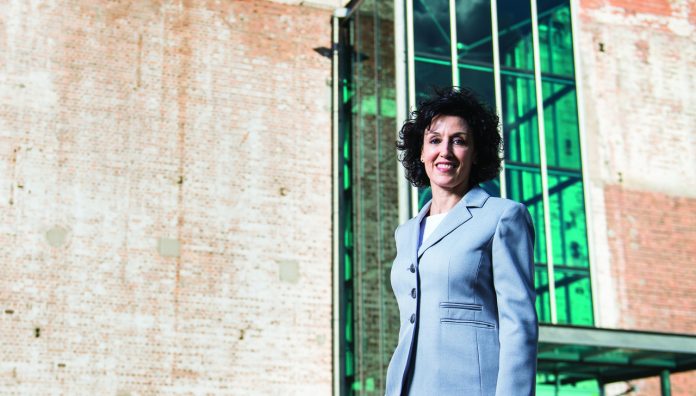Geraldine Moses FPS wears many hats. She’s a hospital-based drug information consultant and clinical pharmacist, and provider of the Australian Dental Association’s (ADA) national drug information advisory service, Pharma-Advice.
Dr Moses is also an adjunct associate professor at the University of Queensland and co-founder of medicines education service, Pharmeducation, among many other things.
Many young pharmacists are unsure of how to build their careers. How have you carved out such a unique and successful path?
The two main things that have driven my career are building relationships and accepting new opportunities when they come along.
For example, back in the 1990s I knew some people who worked on ABC radio. One day the doctor who hosted the medical talkback show didn’t turn up so they asked me to do it instead. I anxiously accepted and ended up doing a medication-based talkback show for 15 years.
The Queensland medication helpline and NPS MedicineWise lines we operated at the Mater grew from that radio work – after every talkback segment I’d be back working in ICU at the hospital and we’d get calls from people saying ‘I want to talk to the girl on the radio’.
And another driver was being really good at what you do?
Don’t just think ‘I’m pretty good’, be very good. And don’t rely solely on what you learned at university. To be an exceptional pharmacist you must constantly study.
I find many pharmacists today don’t go back to first principles or memorise facts because they think you can Google it. Obviously anybody can Google things so it’s imperative, if you want to be an expert or consultant, to have extensive knowledge that’s better than Google.
With the surname Moses I often joke about commandments. Commandment Number One of Medicines Information is: always consult more than one source, and not just the internet.
Another common thread seems that you’ve been prepared to take risks, and be somewhat entrepreneurial?
I learned pretty early that if you want to do new and interesting things you have to be brave.
My advice for people who are aspiring to become a consultant or branch out into new areas of pharmacy is: have courage to grab opportunities and run with them intelligently.
My work with ADA, for example, started because I knew a dentist who asked me to present a lecture for his study group. I had no idea what they wanted me to talk about, but I followed the rule about telling them something they don’t know. I chose drug interactions, and it worked.
That study group led to others, which eventually led to working with ADA Queensland. The state president came up with the idea of starting their own drug information service, which eventually was adopted nationally.
What other commandments or advice do you have for pharmacists looking to make their mark?
There are many professions out there that need our help. Nurse practitioners, optometry, podiatry, physiotherapy – they’re all prescribing drugs and would benefit from an expert pharmacist.
Initially you may have to offer your services for free but once they get to know you and realise the value of your contribution, the money will come.



 Dr Peter Tenni[/caption]
Dr Peter Tenni[/caption]
 How should we deprescribe gabapentinoids, according to the Maudsley Deprescribing Guidelines[/caption]
How should we deprescribe gabapentinoids, according to the Maudsley Deprescribing Guidelines[/caption]



 Pharmacists have always prescribed, but they have the potential to prescribe much more
Pharmacists have always prescribed, but they have the potential to prescribe much more





